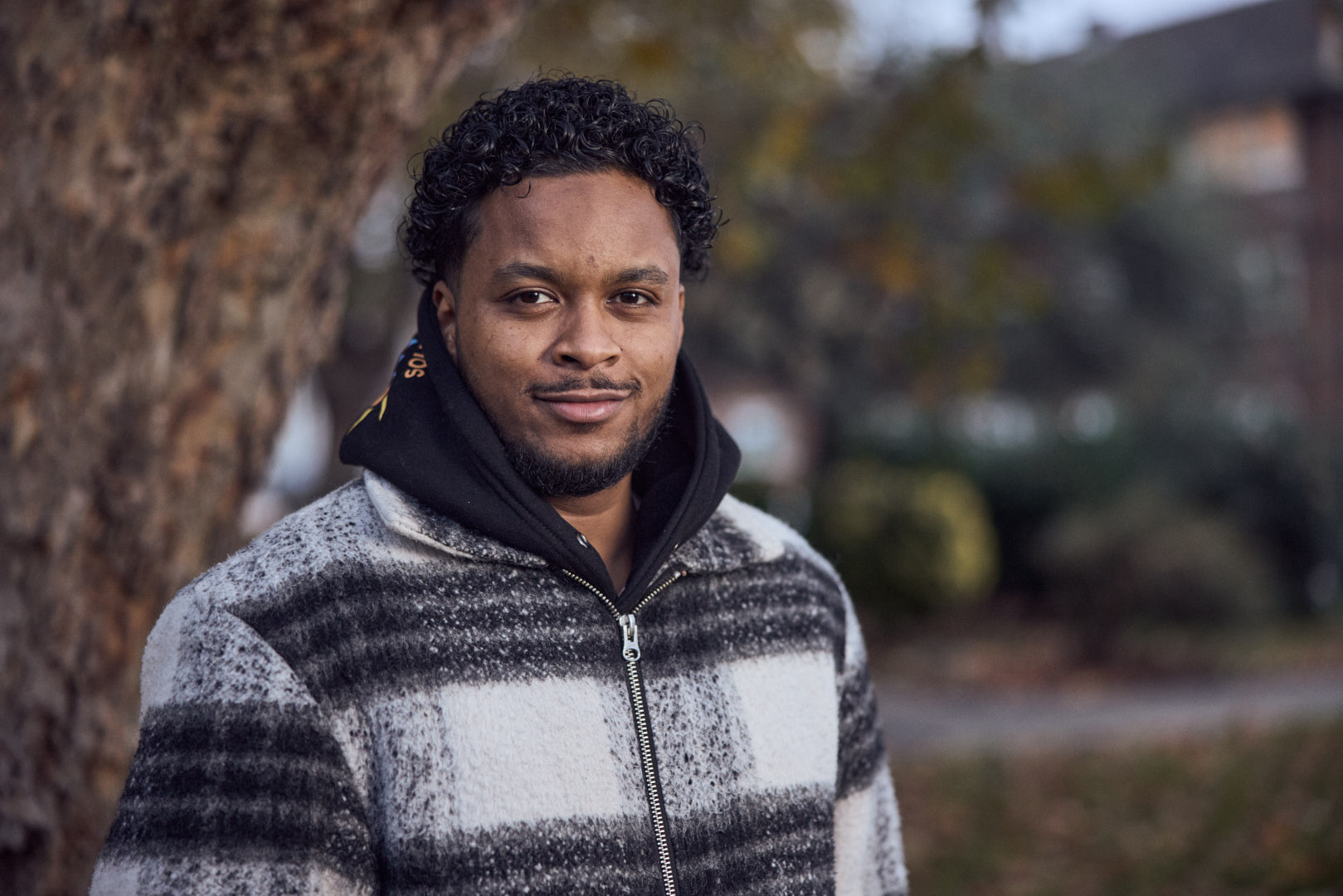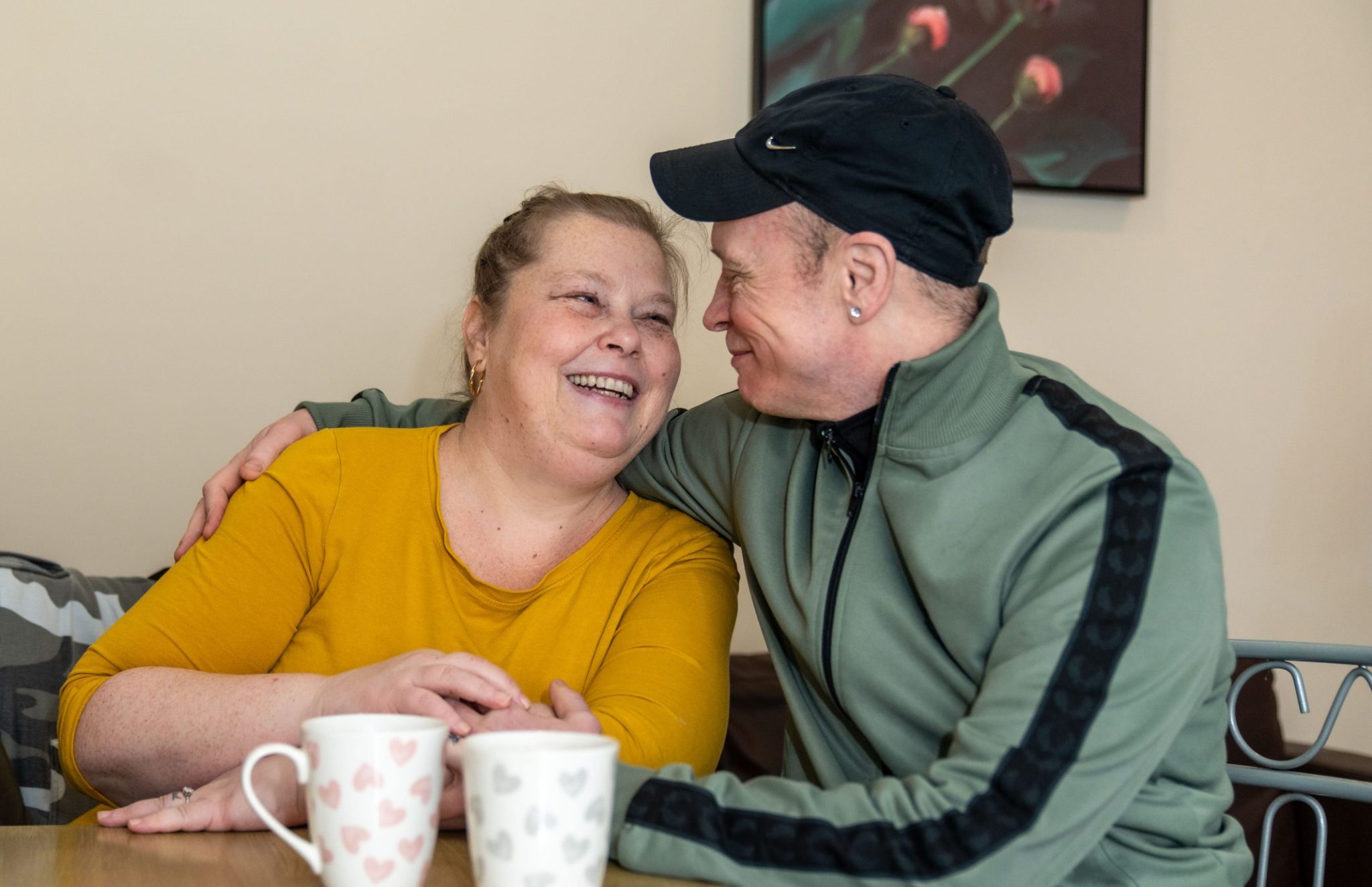‘I was initially housed in west London, but when my asylum application was approved in 2019, I received a letter from the Home Office saying I no longer had the right to stay in the accommodation; I was given a week to leave the property and six months to present myself to a local authority.’
After handing his keys back to the landlord, he went to a West London council expecting to be given a roof over his head. Instead, it was a quick assessment, a promise that someone would get in touch, and a polite invitation to leave the building as, for the staff, it was home time. ‘A security guard told me to go and sit outside.’
That night, he slept in a park under a piece of equipment known to local children as the ninja train with other adults who gathered to drink and take drugs. ‘That’s when I started smoking cannabis,’ he explains. ‘It’s not a great option, but the street can get to you.’
When he wasn’t sleeping outdoors, he stayed with different friends for short periods, careful not to outstay his welcome and, as he puts it, ‘make myself heavy on one person’.
Eventually, he got a call from St Mungo’s. ‘They checked on me from time to time and really engaged,’ he says. It was the first time anyone had really taken an interest in him. After four months of sleeping outdoors and sofa surfing, they offered him a place to stay.
In 2020, during the first phase of lockdown, he was in a house with five rooms and discovered that even a large, shared house can be a lonely place when there is no living room, a rampant virus that means the support worker can’t visit, and residents with underlying health conditions who need to self-isolate. Being outside wasn’t much better.
‘I’d go outside for a cigarette and the streets would be empty. Not even the troublemakers were out. Inside, there’d be a few conflicts, with people shouting. At that time, I didn’t understand PTSD, but I learned not to respond.’
He describes himself as emotionally numb. ‘When there’s bad news, I just say, OK.’
He stayed in the house for over a year and then left. ‘It wasn’t the right space for me to grow. The rooms were nice, but I wanted to work and they said if you work full-time you’re not allowed to stay.’
A tutor on his college course wrote a letter to a north London council to explain that he had a local connection. He approached the authority and in December 2021 was given a private room in a YMCA. That arrangement came to an end, again, because he regularly worked overtime on a part-time contract and ended up in a dispute over rent.
‘I wanted my own space but didn’t know where to go. I stayed with a friend’s aunty for a while, but her son came back home and she told me to leave. I tried to move out of London – Manchester, Liverpool, Bournemouth – but they all said that I had no local connection and told me to go back.’
Back at square one, he went online and entered a few words into a search engine; something like, ‘I’m facing a housing crisis, what can I do?’ One of the first hits was for Crisis. Crisis referred him to Thames Reach, Thames Reach referred him to Cromwood and square one became a memory.
‘They [Thames Reach] said, there is a property available that suits your needs. A self-contained space. I saw the one-bed flat offered by Cromwood Housing and I was excited. The place was empty at that time, but it was big and it felt like a real home, a place to start from.’
He’d finally found organisations to help him climb the ladder and keep climbing rather than sliding down to the tail of the snake.
'Lots of organisations have power and act as gatekeepers, but organisations such as Cromwood, Crisis, and Thames Reach improve a person’s life a lot.'
Maher
‘I’ve been here for two years now. The tenancy is temporary, but it has no end date. I’m in my own space, I can welcome people, I feel I’m really living. I totally support the housing association. It doesn’t matter that I can’t buy the house, at least I’m getting something affordable.’
He’s now passed his driving test and has a job as a support worker with Thames Reach. His new circumstances mean that he’s mixing with a different set of people. Older colleagues encourage him to work hard and save for a house; his spoken English has improved in leaps and bounds and he’s full of ideas, from going to university to study chemical engineering to continuing to build his digital marketing company.
Work can be tough, but he says, ‘I like to give people hope. I tell them about all the organisations who helped me to develop skills, volunteer, get education and housing. There are a lot of resources out there.
‘Lots of organisations have power and act as gatekeepers, but organisations such as Cromwood, Crisis, and Thames Reach improve a person’s life a lot.’
What advice would he give to other homeless people? ‘Arabs say, “If you have lost your direction, just ask people the way.”’ He asked the way and is now not just dreaming but planning his next step up the ladder.





